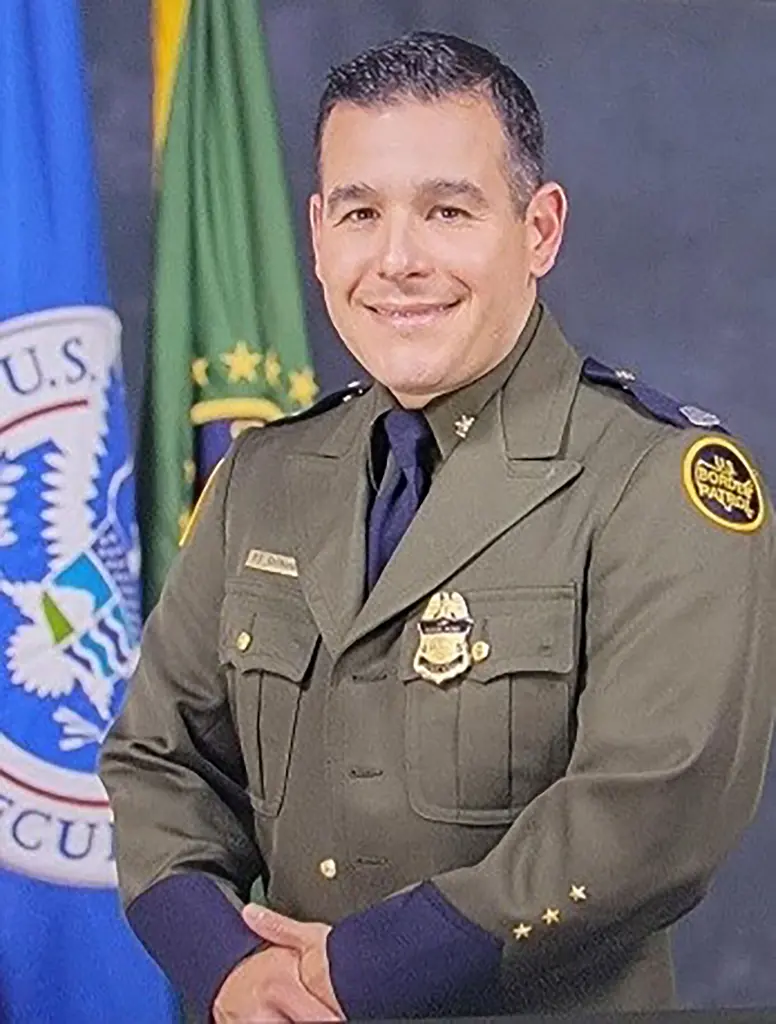Three Border Patrol agents die by suicide in three weeks
Washington DC December 1, 2022 The unprecedented crisis at the southern border appears to be taking a toll on rank-and-file Customs and Border Protection (CBP) officers — with three agents taking their lives in November.
This brings the 2022 total suicides within the agency to 14, more than any year in over a decade, CBP confirmed to The Post.
“It’s a very serious epidemic that’s happening within the agency,” said US Rep. Tony Gonzales (R-Texas), whose congressional district runs along the US-Mexico border from Del Rio to El Paso.
While there’s no single reason attributed for the spike in agent suicides, Gonzales feels the ongoing migrant crisis — with more than 2 million people crossing the border in the last year, hundreds of immigrant deaths, children arriving alone at border crossings, long work hours and dealing with high-stress situations — is taking its toll.
“Work has gotten very difficult on them,” explained Gonzales, who is in touch with Border Patrol agents every day. “I’ve seen it in their faces. I’ve heard it in their voices for months now. It’s almost, ‘How much can a person take?’ And often, they’ve taken a lot before they break.”
Border Patrol Agent Robert M. Boatwright was assigned to the Las Cruces station that is part of the Border Patrol’s El Paso sector. He was a canine handler and lived with the law enforcement dog, as is protocol within the agency.
“Sadly, early indications suggest that BPA Boatwright succumbed to suicide,” tweeted Chief Raul Ortiz, the head of the Border Patrol, without specifying what led to the 49-year-old’s death.
“I recently met with BPA Boatwright’s co-workers, and they described his amazing work ethic and willingness to help others.”
Boatwright, a US Army veteran, died Nov. 20. He had been an agent for 10 years and a canine handler since 2016. He left behind a wife and two children.
The other two deaths happened on back-to-back weekends,
Supervisory Border Patrol Agents Roque “Rocky” Sarinana and Javier R. Fabela took their lives on Nov. 6 and 13, respectively.
Fabela, 49, was part of an intelligence unit. “A United States Army veteran.
SBPA Fabela loved serving his country, community, and this agency. But he loved his family even more. He enjoyed the outdoors, sports cars, the Dallas Cowboys and spending quality time with his loved ones,” said Border Patrol Chief Raul Ortiz.
The National Border Patrol Council, the union that represents 18,000 Border Patrol agents, confirmed to The Post there have been 14 suicides in 2022 by its count. They include eight Border Patrol agents, five Office of Field Operations officers and one support staffer. In other years, they have recorded between five and 12 suicides.
Statistics provided to The Post by CBP showed between 2007 when they started counting and Nov. 30 2022, the agency has lost 149 people to suicide. Statistics they had compiled in 2019 showed the average age of an employee who took their life was 41, with an average tenure of 11 years in service.
The issue has led CBP to hire “suicidologist” Dr. Kent Corso to help. Although an individual’s decision to take their own life is a complex one with many factors from personal lives and various circumstances contributing, Corso is helping the agency understand and work to do its best to help prevent further suicides.
Corso has already traveled to Laredo, Texas, to meet with agents and plans to travel to the Rio Grande Valley, where two of the agents who killed themselves worked, to give a suicide prevention session, according to the agents’ union.
“There is no higher priority for CBP than taking care of our people,” said a spokesperson for US Customs and Border Protection in a statement to The Post.
“CBP has expanded the number of on-site clinicians and is hiring over a dozen operational psychologists. Together, these licensed professionals implement an evidence-based suicide prevention and intervention program.”
The National Border Patrol Council believes CBP needs to end “fit for duty” protocols that agents are subjected to if they voice suicide, mental health or other struggles, like a loved one’s death.
Sergio Moreno of the National Border Patrol Council explained how in those situations, agents who seek help have to turn in their badge and service weapon, are ineligible to work overtime, and confined to desk duty, out of uniform.
Moreno explained the same protocol is used when officers are placed under investigation or disciplined, which could lead colleagues to form an incorrect perception of their co-workers.
“They treat those employees like second-hand members of the workforce,” said Moreno. “You’re not allowed to wear the uniform, so the next day you come to work and [co-workers] say, ‘Either he got hurt or he did something wrong’ … they’re shamed. They’re ostracized.”
In order to return to their normal duties, an agent must be medically and psychologically evaluated by agency-chosen doctors.
“That ‘fit for duty’ process the agency forces their employees to go through is usually seen as the guillotine to your career,” Moreno said. “Our goal is to change that culture.”
Others working alongside CBP on the border have also been affected by suicide. The Army Times reported in December 2021 how four soldiers in the Texas National Guard working on Operation Lone Star — Gov. Greg Abbott’s mission to secure the Texas border — had committed suicide that year, although the Texas Military Department disputed two of those.
National Guardsmen are deployed from other parts of the state to assist CBP in their operations. Another Texas National Guardsman died from a self-inflicted gunshot wound to the head in Eagle Pass at the beginning of October, according to Fox news.
If you or someone you know is thinking about suicide, dial 9-8-8, the Suicide & Crisis Lifeline.




